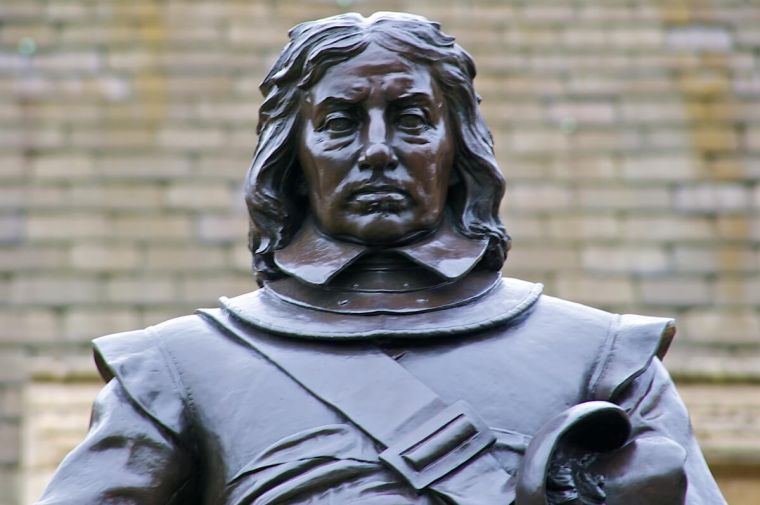No mince pies, by order: When Parliament banned Christmas

is the most wonderful time of the year, as everyone knows. But there was a time in England's history when it was banned altogether.
It was during the time of the Puritans, otherwise known as the Roundheads, who wanted to purge the country of what they believed were the abuses that had grown up in the Church over the years and make it a properly Christian nation.
They were serious people who thought that the best way to reform morals was to make laws and force people to keep them. That gave them a reputation for being terribly gloomy and, well, puritanical; they banned all sorts of games and pastimes, including football. As the historian Lord Macaulay wrote: "The Puritans hated bear-baiting, not because it gave pain to the bear, but because it gave pleasure to the spectators."
Christmas was a real problem for the Puritans because people enjoyed it so much. In 1580, a man named Philip Stubbes wrote a book called The Anatomie of Abuses, which is not a cheerful read. He complained that more mischief was done at Christmas than in the rest of the year put together. "What dicing and carding, what eating and drinking what banqueting and feasting is then used, more than in all the year besides, to the great dishonour of God and impoverishing of the realm," he said.
Partly the Puritans were against Christmas because people enjoyed it, and partly because it was associated with Catholicism, which they were dead against. The word even means "Christ's Mass". They flexed their muscles with the outbreak of the Civil War against Charles I. In 1642, Parliament banned all plays, including Christmas pageants.
On December 19, 1644, it ordered that December 25 should be marked as a fast, not a feast, and banned Christmas altogether. Edmund Calamy preached a sermon in the House of Lords saying: "This day is commonly called Christmas-day, a day that has heretofore been much abused in superstition and profaneness. It is not easy to say, whether the superstition has been greater, or the profaneness... and truly, I think the superstition and profaneness of the day are so rooted in it, that there is no way to reform it, but by dealing with it as Hezekiah did with the brazen serpent [2 Kings 18:4; he broke it in pieces]. This year God, by his providence, has buried it in a fast, and I hope it will never rise again."
However, the people didn't like it a bit. They enjoyed Christmas and didn't see why they should have to stop celebrating it. There was an undercurrent of rebellion, with Cavalier poets writing mocking skits like one called, Women will have their will or, Give Christmas his due. It's a dialogue between "Mistress Custom", who stands for the old tradition, and "Mistress New-Come", who stands for the Parliament. When New-Come says Christmas has been banned, Custom says: "God deliver me from such authority; it is a worser authority than my husband's; for though my husband beats me now and then, yet he gives my belly full and allows me money in my purse... Cannot I keep Christmas, eat good cheer and be merry without I go and get a licence from the Parliament?"
In 1650 Oliver Cromwell wrote a report saying there was "a very wilful and strict observation of the day commonly called Christmasse day throughout the cittyes of London and Westminster" and urging strong measures against the lawbreakers.
In 1657 John Evelyn wrote in his diary that he was celebrating Christmas with his wife in chapel when soldiers burst in on them. They carried some of the congregation off to prison.
Evelyn said that these were "men of high flight and above ordinances, and spake spiteful things of our Lord's Nativity. As we went up to receive the Sacrament, the miscreants held their muskets against us, as if they would have shot us at the altar; but yet suffering us to finish the office of Communion, as perhaps not having instructions what to do, in case they found us in that action. So I got home late the next day; blessed be God!"
Ultimately, banning Christmas didn't work: it was just too much fun, and its roots were too deep. With the Restoration of Charles II in 1660 the festival returned. Samuel Pepys enjoyed it; he always went to church and made a point of noting what was for dinner. In 1662 it was "a mess of brave plum porridge and a roasted pullet" and a mince pie.
Follow @RevMarkWoods on Twitter.











